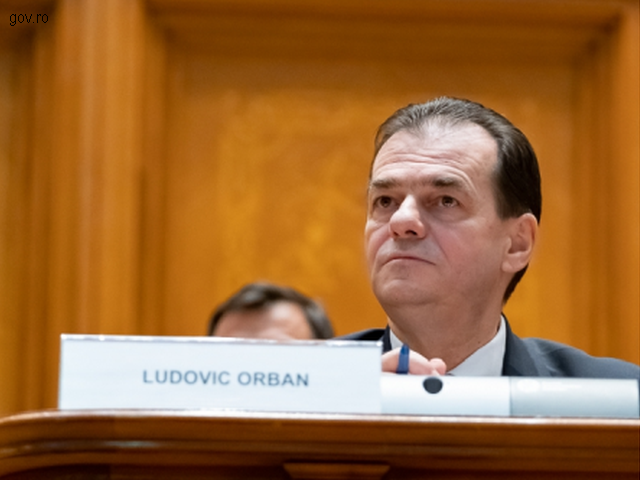Orban Cabinet out: what comes next?
Three months after being sworn in, Ludovic Orbans Liberal Cabinet was dismissed through a motion of no-confidence

Corina Cristea, 06.02.2020, 14:00
Criticised by his political opponents for trying to change the election laws without proper parliamentary debate just months ahead of the local elections, the Liberal PM Ludovic Orban Wednesday failed the test of a no-confidence motion tabled against his team. The 4th government since the 2016 parliamentary election and the first Liberal government in the same period only lasted for 3 months in power.
The Social Democrats, now in opposition following a no-confidence motion passed in October, joined forces with Pro Romania, the party headed by the former prime minister Victor Ponta, and, also backed by the Democratic Union of Ethnic Hungarians in Romania, came up with more than enough votes to bring the Orban Government down.
The stakes are high: the voting system for the forthcoming local election. The current format, with only one round of voting, favours the big parties, including the Social Democrats. And although its approval rates are declining, the Social Democratic Party continues to have the largest number of seats in Parliament and the largest number of mayors in the country. So the change in the voting system pushed forth by the Liberal Party would first and foremost affect the Social Democrats.
In turn, the National Liberal Party, whose number of supporters has almost doubled since 2016 to around 47% according to opinion polls, also has a substantial number of mayors, but says a 2-round election system would ensure more legitimacy to local officials.
The fall of the Orban Cabinet also paves the way to early elections, a scenario that both the Liberal Party and president Klaus Iohannis favour at present. According to president Iohannis, turning to voters is, at present, the most reasonable solution for the country. But the procedure for holding early elections is rather complicated, according to the Constitution. For the president to be able to dismantle Parliament, 2 prime minister nominations must be rejected within the coming 60 days.
This outcome is desirable for both the Liberals and the Social Democrats, for different reasons, says political analyst Cristian Pirvulescu. As he put it, “the Social Democratic Party found itself in a position to choose the lesser evil, between the 2-round voting in local elections and early parliamentary elections.
Another political analyst, Radu Magdin, agrees that the current result is good for the National Liberal Party and the Democratic Union of Ethnic Hungarians as well. “The Liberals target a 35% score in the parliamentary election, which is quite likely in the current circumstances, whereas the Social Democrats and the Ethnic Hungarian party focus on keeping the single-round voting for mayors. “Beyond going through the motions of political competition, Radu Magdin also says, this result also indicates heavy backstage negotiations. And the only party that stands to lose, according to opinion polls, is the 3rd placed actor, the USR-PLUS alliance.
(translated by: Ana-Maria Popescu)






























